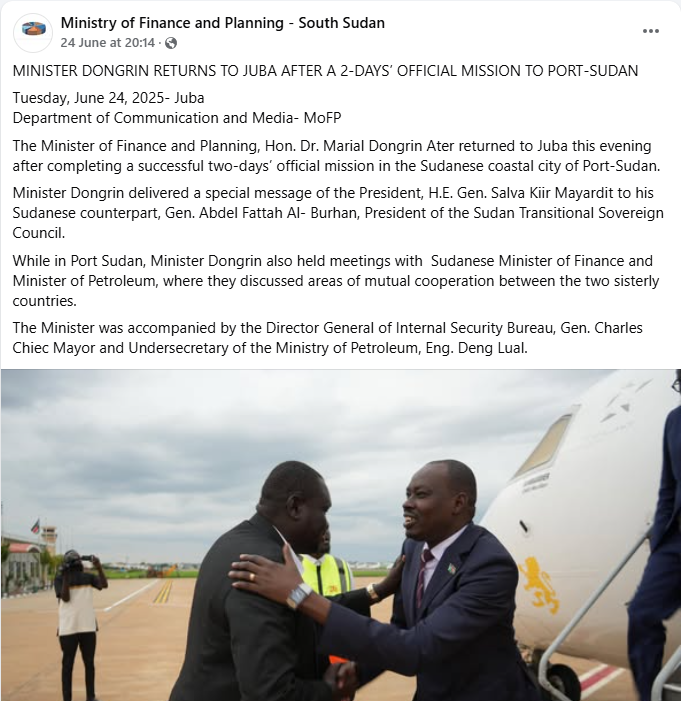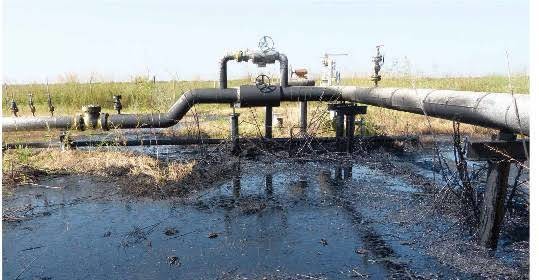Recent talks between Sudan and South Sudan over revising transit and processing fees for South Sudan’s crude oil exports ended without a final agreement, officials and technical sources said.
Landlocked South Sudan relies on Sudan to export its oil through Port Sudan on the Red Sea, paying transit fees. Exports had only recently resumed after a nearly yearlong suspension due to pipeline damage from fighting.
Sudan’s war between the military and the paramilitary Rapid Support Forces, which began in April 2023, has killed tens of thousands, displaced 13 million people and destabilized parts of East Africa.
Though neither side disclosed the talks’ agenda or outcome, sources told Radio Tamazuj that Sudan proposed adjusting export fees related to logistics at the Bashayer oil terminal. Despite high-level meetings in Port Sudan, no final deal was reached on revising transportation, processing and export fees.
“There will be more follow-up meetings in Juba and Port Sudan to finalize the discussion on crude oil matters,” one of the sources said.
Sudan’s Energy Ministry Undersecretary Muhyiddin Naeem told state media over the weekend that discussions were held in a “positive and transparent atmosphere,” with both sides addressing financial and technical issues. He stressed Sudan’s role as South Sudan’s strategic oil transit route, calling the sector “sensitive” and unable to afford disputes.
A Sudanese Energy Ministry source said negotiations covered crude volumes, domestic consumption and operations of the PETCO pipeline, which currently pumps about 28,000 barrels per day (bpd), half for local use. South Sudan’s delegation reportedly did not dispute the technical figures presented.
A South Sudanese delegation, including senior oil and finance officials, visited Port Sudan over the weekend to discuss restarting the pipeline, which has been shut since February 2024. While no full agreement was reached, technical sources said limited crude shipments have resumed as a preliminary test. Before the shutdown, the PETCO pipeline transported around 90,000 bpd.
Oil fees between Sudan and South Sudan are governed by a 2012 agreement, with South Sudan paying $1.60 for processing, $8.40 for PETCO transit and $6.50 for Petrodar transit, plus a $1 sovereign fee and $15 per barrel in transitional financial arrangements.. For the transitional arrangements, Juba has paid more than $2.5 billion of the $3.028 billion owed, leaving a $500 million balance.
In the recent meeting, Sudan proposed splitting fees into three updated categories post-war: transit, processing (adjusted for crude quality) and export fees tied to Bashayer logistics. A PETCO source said full oil resumption requires repairs, securing conflict zones and a clear timeline.
South Sudan’s delegation inspected pumping stations before returning to Juba but provided no details, only posting on Facebook about discussions on “mutual cooperation.”

Last year’s crude oil export suspension hit South Sudan’s oil-dependent economy hard. The country retained 75% of Sudan’s oil reserves after gaining independence in 2011.
The crisis comes amid political tensions in South Sudan, where Oil Minister Puot Kang Chuol — an ally of detained First Vice President Riek Machar — was arrested in March.




